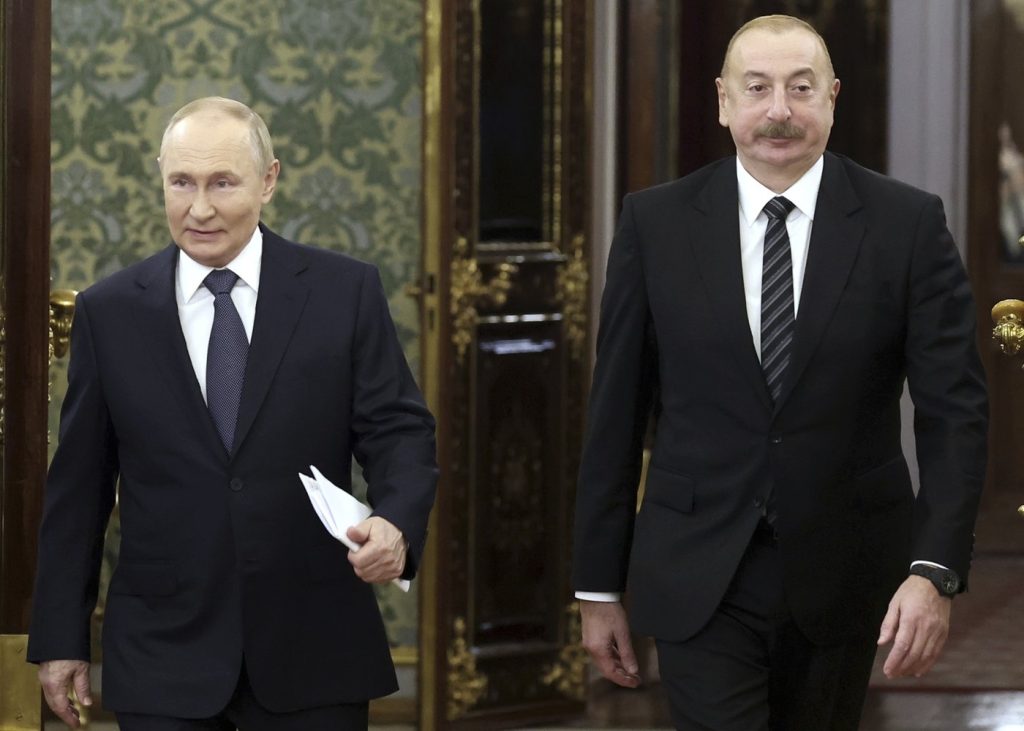The relationship between Russia and Azerbaijan has been strained recently due to several key incidents, contributing to rising tensions in the South Caucasus region. These tensions have historical roots, but recent events such as police raids, military confrontations, and geopolitical shifts are pivotal in reshaping their interactions.
One major factor exacerbating the tensions is the alleged extrajudicial killings of ethnic Azerbaijanis by Russian police. On June 27, 2025, police in Yekaterinburg conducted raids targeting several members of the Azerbaijani community as part of a decades-old murder investigation. During these raids, two brothers, Huseyn and Ziyaddin Safarov, died under circumstances described by Azerbaijani authorities as a result of police beatings and physical abuse. This incident led Azerbaijan to cancel official visits and cultural events with Russia, highlighting severe diplomatic implications.
Further fueling the discord was the crash of an Azerbaijan Airlines passenger jet on December 25, 2024, which Azerbaijani officials attributed to fire from Russian air defenses. The plane was traveling from Baku to Grozny and crash-landed in western Kazakhstan, resulting in the deaths of 38 individuals. Russian President Vladimir Putin expressed regret over the incident but did not accept responsibility, leading Azerbaijani President Ilham Aliyev to criticize Moscow for its handling of the situation. Aliyev's refusal to attend Russia's Victory Day parade in May further illuminated the growing rift between the two nations.
The relationship between Moscow and Baku had previously been characterized by robust economic ties. Since 1993, following the presidency of Heydar Aliyev, Azerbaijan has relied on Russian support for energy demands while exporting its resources to the West. A sizable Azerbaijani diaspora exists in Russia, further intertwining the two nations' interests. However, the dynamics changed following Azerbaijan’s military successes in the Karabakh region, particularly the 2020 conflict where Azerbaijan regained territories previously held by Armenian forces. The Russian response—or rather the lack thereof—during Azerbaijan's full reclamation of Karabakh in September 2023 set off alarm bells for Armenia and contributed to its distancing from Russia, seeking closer ties with the West instead.
The latest tensions escalated further with the Russian police raids on Azerbaijani nationals and subsequent retaliatory measures from Azerbaijan. Baku condemned the Russian police's actions as extrajudicial killings, and in response to the police raids in Yekaterinburg, Azerbaijan detained several Russian nationals in Baku under accusations of drug trafficking and cybercrime. The Azeri government demanded investigations into the deaths in Yekaterinburg along with punishment for those responsible, insisting that these measures are crucial for restoring diplomatic relations.
In light of these escalating tensions, Azerbaijan's leadership has seemed more assertive in dealing with Russia, collaborating with other nations like Ukraine, which has raised further concern in Moscow. The Kremlin publicly criticized Azerbaijan's recent actions, claiming they were unfriendly and aimed at undermining bilateral relations. This ongoing crisis has illuminated a precarious moment for the historical relationship between Azerbaijan and Russia, as external alliances and internal dynamics shape the future trajectory of their interactions.










